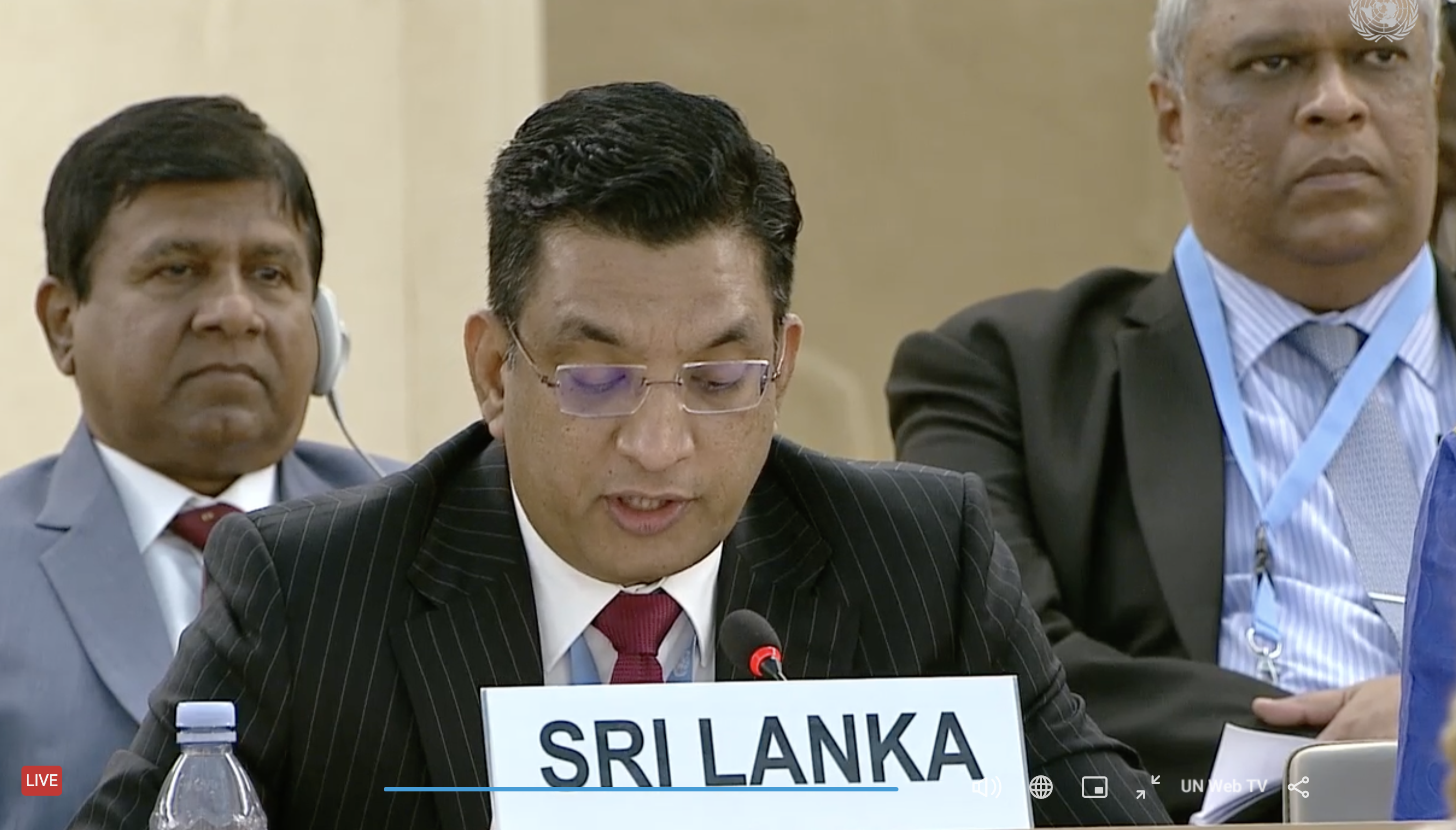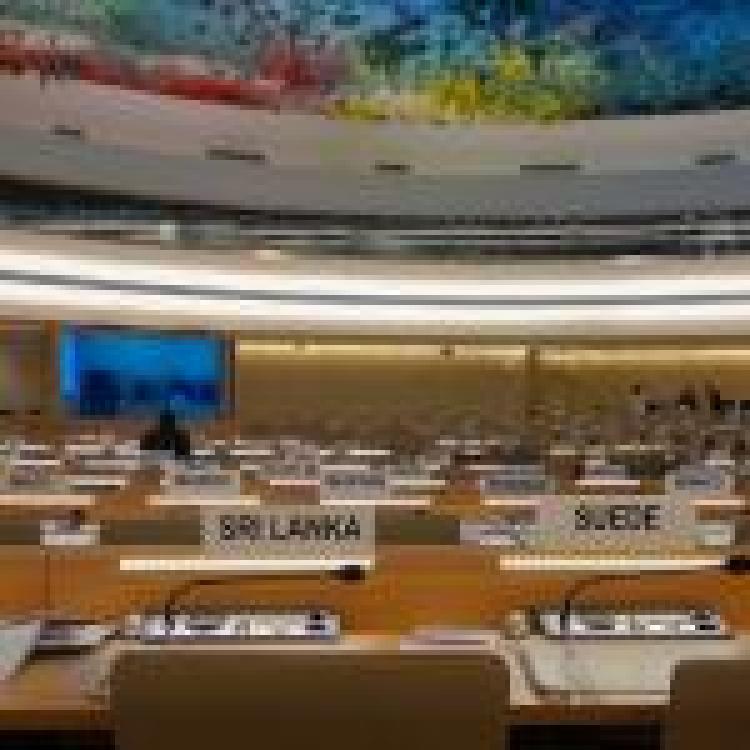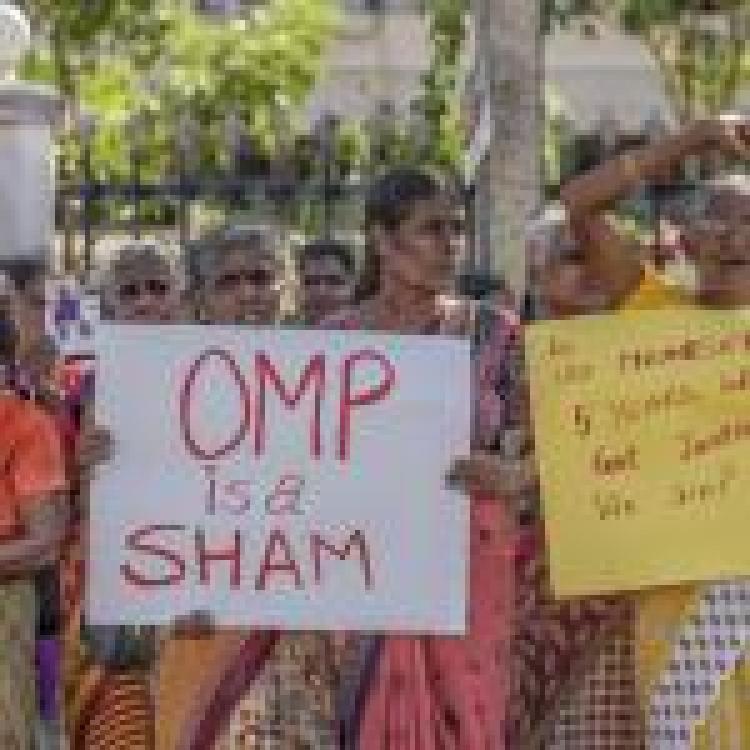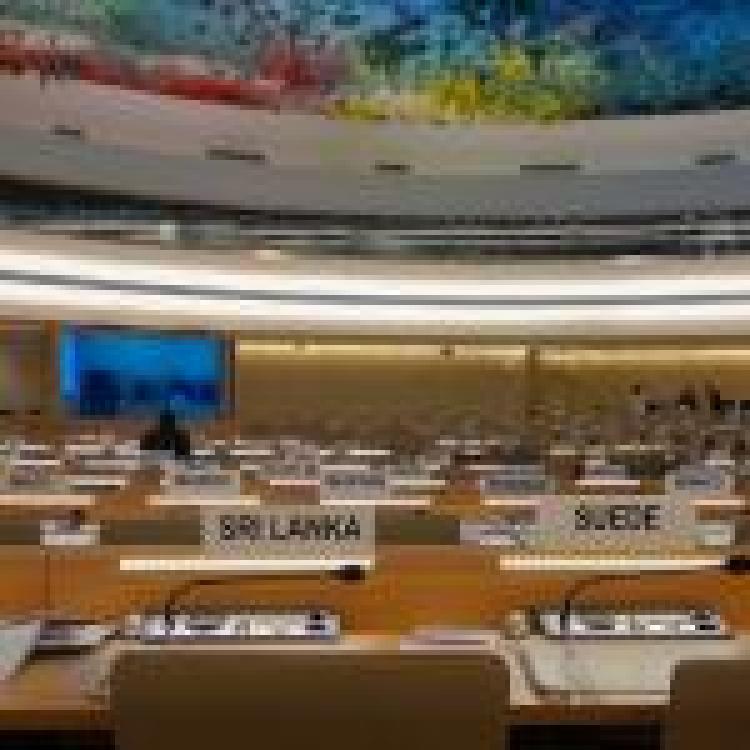
Sri Lanka is seeking the support of its allies at the United Nations Human Rights Council (UNHRC) for a vote on the upcoming UN resolution as the session comes to a close this week.
Sri Lanka's Foreign Minister Ali Sabry, who has been in Geneva to defend the island's human rights record, reportedly said the resolution is "unfair".
"It is against our constitution and we have to respond to that. We are not going to agree on that. Whether we will win or lose, there are things on which we cannot compromise. We will ask for a vote through our friends,” Sabry told Economy Next.
A second draft of the resolution was released last month but failed to strengthen accountability measures. The amended wording of the resolution also reveals a fundamental failure to recognise the root causes of Sri Lanka’s woes.
The resolution calls for the extension and reinforcement of the Office of the High Commissioner "to collect, consolidate, analyse and preserve information and evidence and to develop possible strategies for future accountability processes for gross violations of human rights or serious violations of international humanitarian law in Sri Lanka."
Sabry expressed his concerns over an "outside evidence gathering mechanism and the long-term prosecution of the Sri Lankan armed forces outside Sri Lanka" which the island "cannot agree with". He added that if crimes were committed, they must be prosecuted in Sri Lanka. However, a liitany of failed domestic commissions highlight that accountability and justice will not be achieved through a Sri Lankan accountability mechanism.
During the interactive dialogue on Sri Lanka at the UNHRC, a coterie of rogue states including China, Russia, Iran and North Korea rushed to Sri Lanka’s defence, touting the country’s alleged progress on human rights and asserting their opposition to UN resolution 46/1. Sabry has implied that he will seek the support of his "allies" in the UNHRC to prevent the resolution from being passed this week.
The 51st UNHRC session will end on October 7.



